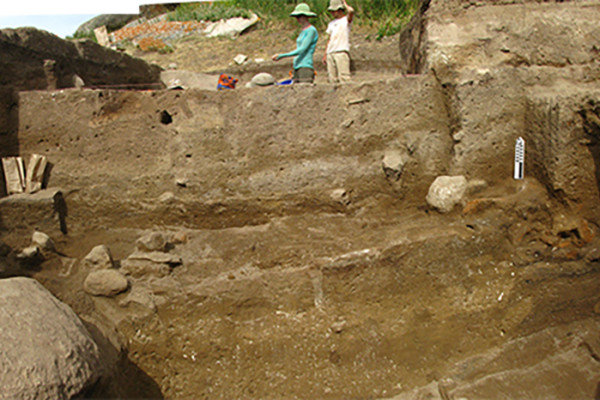Relay for Life kicks off at 6 p.m. Saturday, April 5
Ranked among the nation’s top Relay for Life fundraisers, WUSTL’s event also is one of the most fun. Highlights include a tug-of-war, performances from campus acts and a midnight “silent rave.”
Ancient nomads spread earliest domestic grains along Silk Road, study finds
Charred grains of barley, millet and wheat deposited nearly 5,000 years ago at campsites in the high plains of Kazakhstan show that nomadic sheepherders played a surprisingly important role in the early spread of domesticated crops throughout a mountainous east-west corridor along the historic Silk Road, suggests new research from Washington University in St. Louis.
STL To Do: Classical concert in the Cathedral Basilica
Don’t miss this beautiful classical concert in the Cathedral Basilica, featuring St. Louis’ world-renowned orchestra and choir. With an 8-second sound delay in the hall, the music of Bruckner, Vaughan Williams and Messiaen literally will be bouncing off the walls, immersing you in sound.
Teeter-tottering for charity
WUSTL students are riding a teeter-totter this week to raise money for the Campus Y Strong Community Campaign.
In search of the American Dream
Is the American Dream slipping away? Maybe, says Mark R. Rank, PhD, one of the country’s foremost experts on inequality and social justice. “More than at any time in our past,” Rank says, “there are serious questions regarding the American Dream and its applicability to everyday people.” Rank’s new book, “Chasing the American Dream: Understanding What Shapes Our Fortunes” (Oxford University Press 2014) is out.
Helen Fisher explains everything you want to know about love and aren’t afraid to ask for Assembly Series
Why are we driven to love, and how do we choose whom to love? Biological anthropologist Helen Fisher, PhD, has been asking such questions for decades. She will discuss love for the Assembly Series at 5 p.m. Friday, April 4, in Louderman Hall.
Serving others during spring break
For some, spring break is all about relaxing. But some WUSTL students instead traveled across the globe treating patients, planting trees and digging trenches.
Five students, five continents, one fascinating blog
Five friends and WUSTL students document their studies and travels abroad — on five continents — through stories and photographs.
STL To Do: Banff Mountain Film Festival World Tour
Video producer Thomas J. Malkowicz recommends the Banff Mountain Film Fesitval World Tour. He says St. Louis is lucky to be a stop on the globetrotting tour, which showcases heart-stopping short films about adventure, travel and the environment.
Former Sen. Snowe to chat with faculty, students
Former U.S. Sen. Olympia Snowe, of Maine, will have an informal conversation with Washington University in St. Louis students and faculty at 3:30 p.m. Tuesday, April 1, in the Women’s Building Formal Lounge. The event is sponsored by the Weidenbaum Center on the Economy, Government, and Public Policy.
Older Stories

